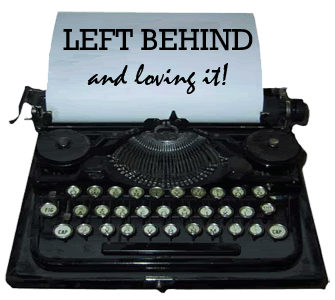 There are many ways of looking at the revision process. Several excellent workshops have been running concurrently (see the list at PBWriter's blog) dealing with revision and editing. But they have formed a more distant overview of the process. What I will present here is a way to look at your language choices in a segment of prose in order to increase its liveliness on the page.
There are many ways of looking at the revision process. Several excellent workshops have been running concurrently (see the list at PBWriter's blog) dealing with revision and editing. But they have formed a more distant overview of the process. What I will present here is a way to look at your language choices in a segment of prose in order to increase its liveliness on the page.This works best with short segments, a page or a scene will do, and should probably be some of the final editing you do on a manuscript. It doesn't make sense to hone language choices to this level of specificity if there are larger overarching issues to fix in the narrative.
When I teach the process of revision for poetry, I ask students to mark every line: underline the verbs, circle the comparisons, and star where there are sensory-rich descriptions, check where there are sound effects. If after completing the process, there are lines with little or nothing marked, you have an opportunity to enliven the work. This can be a powerful tool in evaluating your prose as well.
What follows is the opening ~200 words of one of my manuscripts, currently in revision. I will go through the process of marking up the text for illustration. Bold--verbs, italics--comparisons, ( ) sensory description. Because the text got hard to read with all the html tags, I pulled out some sound effects below the rest.
Chapter 1
For the thousandth time, Isabel wished Jared had sent someone else to cover this story. Taking a deep breath, she composed a professional expression on her face and followed the mother up the stairs.
Isabel paused at the threshold of the girl’s room. Sera Campbell’s (ashen face and blond hair) stood out against the (oppressively cheerful pink bedspread). (Pink curtains filtered the afternoon sun, filling the room with pastel light.)
“Sweetie? This is Ms. Jepsen, the reporter I told you about. Remember?”
The girl's eyes were open in a fixed stare.
Isabel perched on the edge of a wicker rocking chair next to the bed. Turning her tablet to record, she leaned close to the girl. “Sera, can you hear me?”
The child's slow breathing never changed its cadence. Isabel reached out with her full senses and felt nothing. She shivered. Even mindblinds had an echo, but Sera was like a life sized hollow doll. Isabel forced herself to swallow against a rising tide of nausea.
sound: sent/someone/else/story, rising/tide
When I analyze my choices in this way, a few things stand out.
1--verbs--Many verbs are strong, able to stand on their own and carry emotion. Composed, filtered, perched, swallow, rising are all descriptive and effective in the context. Some exceptions: sent, taking, followed, stood out, were, felt, had, was are relatively weak verbs. Some may be changed, others left as they are so that certain of the strongest verbs will be noticed.
2--Comparisons--the section had one simile--the hollow doll. One in a 200 words segment is probably sufficient.
3--Sensory details--Pretty much sight is it. There is little described in any other sense. Room for improvement there.
4--Sound effects--some word choices that enhance mood. Used sparingly to avoid the tongue twister effect. Some changes in verbs may be dictated partly by sound considerations.
Not every instance of the verb 'to be' is evil. Just like 'said' is the most innocuous speech tag, sometimes 'was' is appropriate to a sentence, particularly if there is some other tool for emphasis being used. Remember, even the best 'spice' can ruin a dish. Choose your effects with deliberate care, knowing what kind of mood you want to create for the reader.
In comments, feel free to share a snippet of your own work, or just post a comment about this process. Anyone who comments will be eligible for a private critique/commentary of a page (250 words) along these lines. These critiques WILL NOT be shared on the blog.
Winners to be announced tomorrow evening.
Your example showing how to use your editing strategy is great. (I'm also intrigued by your story!). These series of workshops have been so helpful - thank you.
ReplyDeleteI'm not sure how to phrase this question (please bare with me). I'm always on the lookout to improve my knowledge of strong words and try to keep a running track (something to brainstorm and get me thinking and to get creative). Your word choices evoke strong imagery, so I was wondering do you have any tools, techniques, resources (other than thesaurus) that you use or does it just come natural to you?
thanks!
Shannon
Shannon--I think that many of my language choices comes from being a lifelong and avid reader. I have also been reading and writing poetry since I was a child. I have always considered poetry to be the most distilled and powerful use of language. If prose is orange juice, then poetry is the orange juice concentrate. :)
ReplyDeleteIf you are new to poetry, this is a good place to start. It showcases 180 poems of different poets from different times and sensibilities.
Thank you for the link and your thoughts! Hope your weekend is going well,
ReplyDeleteshannon